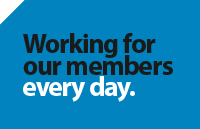 Even as many stores enjoyed a rise in sales in March and even into April, drop-offs are starting to occur, especially among dealers catering to large contractors and builders. The viability of many businesses will be threatened, should the restrictions continue for many more weeks or even months.
Even as many stores enjoyed a rise in sales in March and even into April, drop-offs are starting to occur, especially among dealers catering to large contractors and builders. The viability of many businesses will be threatened, should the restrictions continue for many more weeks or even months.
According to a survey done by the Canadian Federation of Independent Business about the impact of the global pandemic, 62 percent of businesses would not be able to quickly shift more than 10 percent of sales to online or telephone options. The research highlights other significant challenges:
- 42 percent are worried about having to close their business permanently;
- 32 percent of those who have had to close are unsure if they will be able to reopen;
- 25 percent say they can survive less than a month under the current conditions;
- 22 percent have no sales or revenues, and a third have seen declines of 51 percent to 99 percent of their gross revenues; and
- the average cost of COVID-19 on small businesses so far is $206,000.
Amanda Fancy at Gow’s Home Hardware and Furniture in Bridgewater, N.S., is holding together on the retail front. But behind the scenes, she’s worried. “The sky fell on March 15,” she says. Now, a month later, she says she needs half a million dollars in additional financing to keep going.
The feds have expanded one program that may help. The qualification requirements for the $40K Canadian Emergency Business Account (CEBA) have been loosened. Now, retailers with payrolls of $20,000 to $1.5 million in 2019 will be eligible to apply for the loan. The loans are made directly through the retailer’s business bank account.
But she’s also pragmatic. If the store closes its doors, she’s ready for curbside pickup and wireless pay. “I’m happy that we’re considered an essential service. But if we’re not, we’ll be prepared for this.”



































